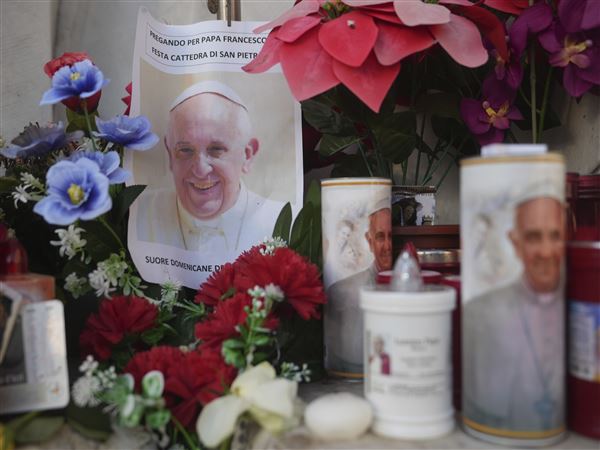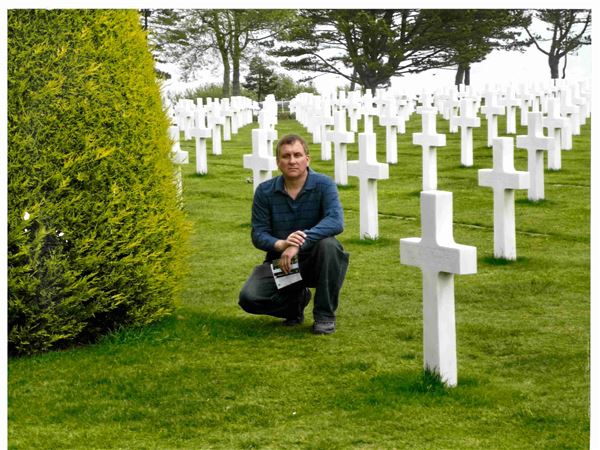Ross native Inder Singh spent the past year and a half with the Clinton Foundation working out a business deal by which millions of poor people in 69 developing countries will have access to anti-malaria drugs.
Now, the foundation has tapped the 31-year-old son of Indian immigrants to direct its entire drug access program, which is part of the foundation's HIV/AIDS Initiative.
It's the perfect job for Mr. Singh, a modern-day Quixote who balances the heart he wears on his sleeve with feet firmly planted in sound business practices.
"He's an idealist," said his younger sister, Monica Singh, a recent law school graduate who is starting a career in immigration law in Philadelphia.
"Above all, he does believe he can help in some way and he has truly done that. He's put that [belief] in something concrete."
That something concrete is the malaria drug agreement announced by former President Bill Clinton in mid-July.
The pact, signed by four Indian and two Chinese companies, reduces the price of a key malaria drug by about 30 percent. It also puts a ceiling on the wild price swings of artemisinin, the powerful antimalarial plant-based compound used in ACTs, or artemisinin-based combination therapies.
In recent years, the price of artemisinin, from plants that can take a year or more to reach maturity, has fluctuated from as little as $150 per kilogram to as much as $1,100.
In the work leading up to the drug agreement, data was compiled showing that with lower-priced drugs, money from donors could be stretched to treat more patients. Mr. Singh said that in 2009, "up to 12 million more people can be treated using these highly effective drugs with the available donor funding; this means that up to 40,000 lives can be saved."
In return, the six firms, which signed long-term agreements, benefit in several ways.
In the first place, Mr. Singh said, they get name association or brand equity by way of their affiliation with the Clinton Foundation. "That's important because of the [foundation's] buyers consortium of 69 countries ... [which] trust us."
A second aspect, he added, is detailed market information. The foundation, in which most of the employees have strong business backgrounds, does things like forecasting sales and demands. Third, there is technical support on quality targets and standards and regulatory processes.
Though the foundation earlier did a drug access program for HIV/AIDS, the malaria agreement was Mr. Singh's baby.
"I was the first hire [for the program]," he said. "In terms of what I had to do, I had to develop a strategy, establish the [corporate-foundation] relationships and negotiate the deals."
Mr. Singh said that "one of the neat aspects of the Clinton Foundation is that it brings a business-oriented perspective" to its work. He believes that is one of the reasons he got his initial job as associate director of drug access for malaria -- his work experience in Silicon Valley startup companies with a health care and business background.
An eclectic academic background including five degrees was no doubt another plus. He studied bioengineering and economics as an undergraduate at the University of Michigan before heading to California for five years of experience in three startups, one of them his own business.
Then, as his sister described it in a short biography, he returned to school "with the itch to again apply his business skills to social problems."
He received a master's degree in business from Massachusetts Institute of Technology, a master's in public policy from Harvard University and a master's in health science and technology from a joint Harvard/MIT program.
With all of that beneath him, he was well-suited for heading the malaria drug program.
"I had the great opportunity of studying at a medical school," Mr. Singh said. "The health sciences program was trained along with medical school students in the medical school. ... We even did clinical rotations so we got to deal with patients."
As a result he began work at the foundation with a "decent" knowledge of malaria and a background that enabled him to understand what he had to learn about the drugs.
He picked up experience in the world of nonprofits in his undergraduate days at Michigan, when he founded the still-active Dance Marathon Inc. To date, Dance Marathon has raised more than $2.5 million and channeled more than 35,000 volunteers to support children undergoing extensive rehabilitation.
"The entrepreneurial bug bit me when I started [the nonprofit at Michigan]," Mr. Singh said. "In a year it became the largest community service organization on campus."
But Monica Singh says the "do-good" bug was established in her brother -- and in her -- well before they got to college. She credits their parents, mother Geeta, a retired family practice physician, and father Bhupinder Raj Singh, an engineer at the University of Pittsburgh, who immigrated in 1970.
"I think my parents, having been raised in India and witnessed tragedies, like hunger, poor education, have instilled in us an awareness or concern for the plight of others," Ms. Singh said.
"They encouraged us to volunteer. We both volunteered at the hospital. ...
"I think they just taught us that every contribution is important, and Inder brought that to a different level in college and in his career as well."
First Published: August 20, 2008, 8:00 a.m.

















